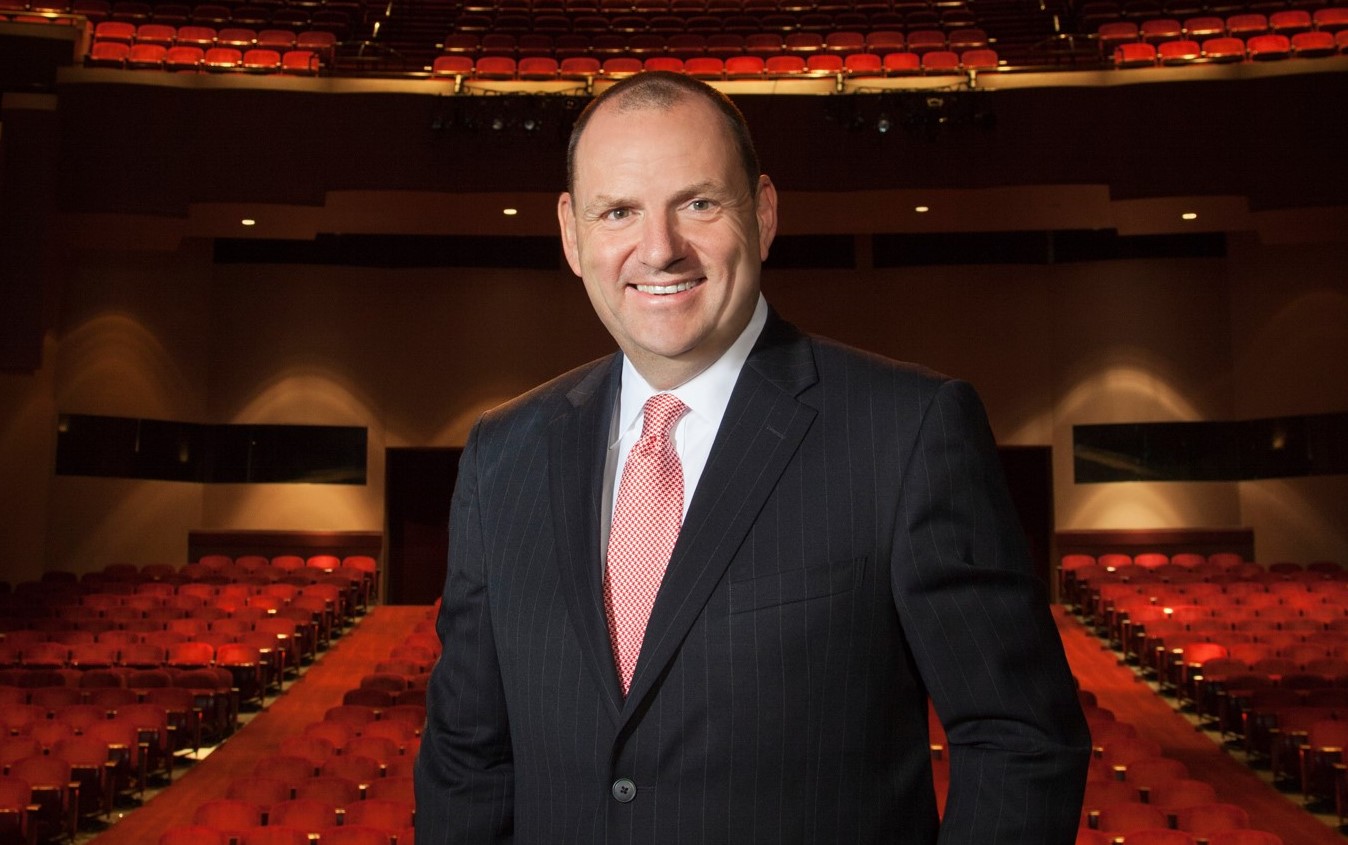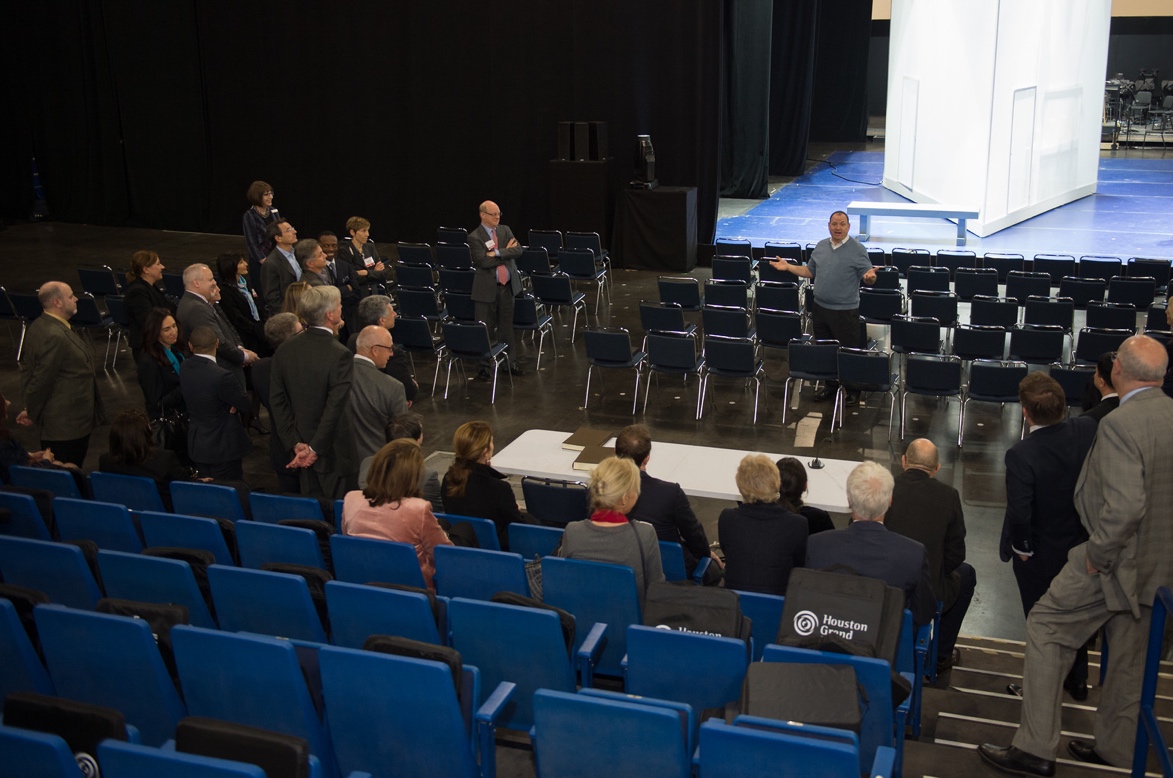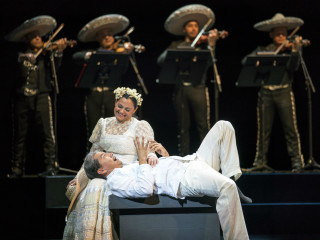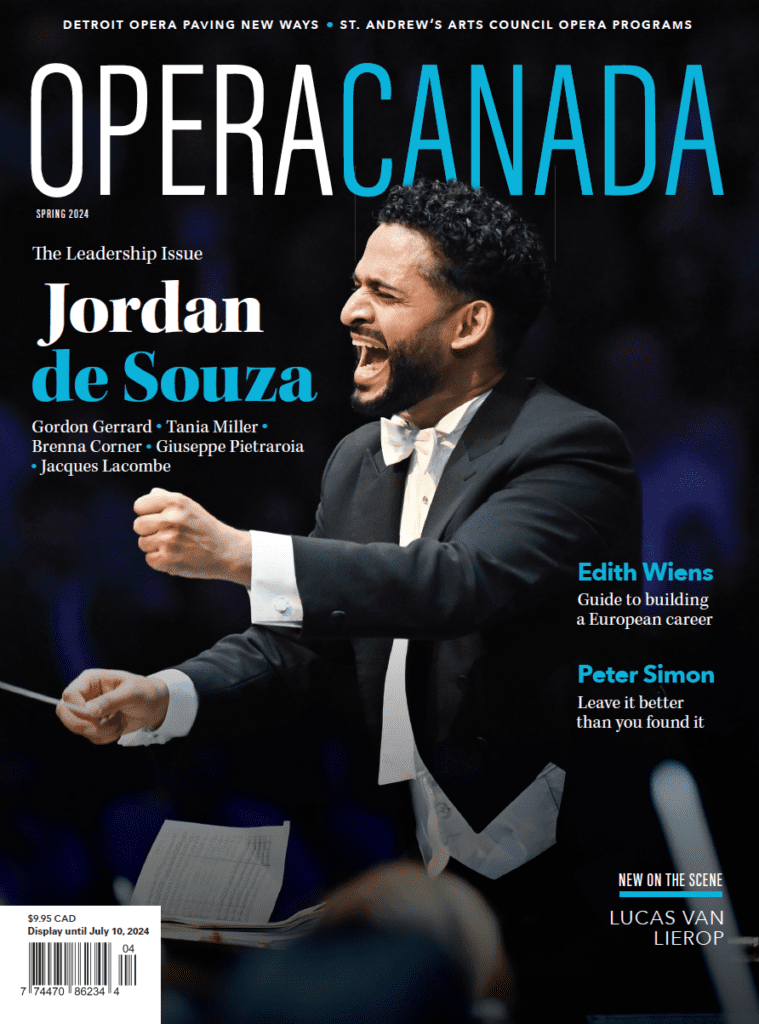“Collaboration” might be the most important word in Perryn Leech’s vocabulary. The new General Director of the Canadian Opera Company comes from the behind-the-scenes world of opera production, having spent his formative years learning the literal and figurative ropes. Opera, he notes, is “the largest of the art forms: it has musicians, singers, technicians,” and is wholly dependent on all its various parts meeting the demands placed upon their respective roles within the greater whole. “I’ve always watched how things are put together,” Leech says on a snowy day in mid-December, “and touring with companies you get to understand what makes things tick. Turning the engine becomes easier if you understand all parts of the engine.”
General Director Alexander Neef’s early departure for Opéra national de Paris in Sept. 2020 accelerated the COC’s search for a new leader. Leech’s appointment was announced in November, with a formal start on Mar. 1st, 2021. His path through the opera world has included positions at Welsh National Opera, English National Opera, and Glyndebourne, before moving to the US in 2006, where he joined Houston Grand Opera (HGO) as technical and production director; he became its Chief Operating Officer in 2010 and a year later, Managing Director.
Leech’s COC naming comes at a time of great anxiety within the arts world, where restrictions and cancellations wrought by COVID-19 have largely silenced North America’s live operatic output. The pandemic caused the COC first to cancel the remainder of its 2019-2020 season, and then the entire 2020-2021 season as well. During his HGO tenure, Leech led the company through Hurricane Harvey in 2017, a storm which seriously damaged the company’s performing venue, the Wortham Center. Leech was determined to continue the season regardless, and the company eventually performed in a temporary theatre erected in the George R. Brown Convention Center. Having pulled through that crisis, Leech says HGO donors’ “muscle memory” was primed for 2020 pandemic support, noting “their contribution now will be well stewarded and provide for an art form they love. Donor relationships take time, belief, and consistent output. You always have to listen to the feedback you’re getting.”
From the COC end, that type of feedback will no doubt include the question of broadcasting. A combination of factors, including reduced CBC funding and union regulations, has led to a paucity of COC content across all platforms (radio and digital), even as other opera companies have offered a myriad of listening and viewing choices throughout the pandemic. “My ethos is about access and making sure as many people can hear your product as possible,” says Leech, “so if it’s not the CBC, we’ll find another way to do it. No one is trying to stop people making money; if it’s ever made in these things, it should be shared between promoter, presenter, and individual musicians, but paying for things upfront makes no sense because there is no revenue. Once in a while things will take off, and any revenue is centred around sharing.”
Such arrangements around compensation are not uncommon within the digital economy, although the highly replaceable nature of virtual content often manifests as maximum work for minimal payoff. “I think there is a need for classical music outlets [online]”, he explains, but acknowledges just how quickly a company’s digital footprint must evolve: video broadcasts (YouTube, Facebook, Vimeo…), podcasts, audio releases, live tweeting, blogging, Zoom lectures … the style of which is in constant flux, now more than ever. This means a new, more equitable payment scheme might yet be developed. “Think of all these streaming platforms that didn’t exist a few years ago; in two years’ time there will be a new crop of platforms we’ve never heard of,” he says. “But we also need to ask how they can include the evolution of new art works as well as old.”
Indeed, devotion to new work is something HGO can be proud of; works like Dead Man Walking, The Phoenix, Cruzar la Cara de la Luna, (To Cross the Face of the Moon) and Cruzar, El Milagro del Recuerdo (The Miracle of Remembering) are just a few of the many new works premiered during Leech’s time in Houston. “HGO has new work in its DNA, and I want people to see new work as much as possible,” he says. “The art form needs to develop through new creative work. It’s about telling stories from communities we are there to serve; the COC is there to serve all of Toronto, not only a small number who come downtown to performances, but the whole city, and we want everyone to have a voice in this. I think that means real creation, not going in saying, ‘Here’s a really brilliant composer and librettist and we’ll do this project’—it’s about listening to others, and hearing what other communities have in terms of the stories they want to tell, and developing them together, and performing them in their local halls. That is much more authentic, and a much deeper connection, than, ‘Come downtown and watch this work.’”
Such openness in terms of access extends to Leech’s belief in the importance of opera as an ecosystem of creative energy. “When we talk about brilliant singers we should be talking in the exact same breath about brilliant librettists, brilliant conductors, brilliant directors, as well as brilliant designers and video artists. I am looking forward to exploring Canada’s creative economy to see what other art forms can be brought into play.” Neef’s tenure was notable for the numerous international names who regularly graced the Four Seasons Centre’s stage; it’s a trend Leech is committed to continuing while simultaneously fostering homegrown talent. “The COC will continue to be an international casting house, there’s no question about that, but we do also need to look at Canadian artists and how we can give them a career track that allows them to represent the community they came out of, so young people can say, ‘That’s a viable career for me.’”
Such dedication to the art form, its artists, and its patrons bodes for a vision of the COC that bucks the notorious ‘silo’ mentality, in which any possibility for collaboration is erased, and instead, parochialism and competition are reinforced. Amidst restrictions to presentation stemming from COVID-19, it’s a mindset which seems especially antithetical to the spirit and aims of a cultural institution. Leech welcomes initiatives toward making the Canadian Opera Company into a broader-reaching organization more fully reflective of its title. “There have been times through my career where others have said, ‘That’s impossible; there’s no way that could happen’ and …we find a way. By nature I am a collaborative person, but I am also very stubborn!”
Leech’s belief in collaboration as a cornerstone of both operatic production and continuance encompasses a desire for the COC to be a truly Canadian company that stands firmly alongside its national opera cohorts—not in competition with them. The company’s new General Director is hoping to create something of a northern version of the Texas Opera Alliance to which HGO is a member (along with The Dallas Opera, Fort Worth Opera, Austin Opera, and OPERA San Antonio). “None of us are in competition with each other—we are not; I want to make that clear,” he says. “We all have the same vision, which is to create spaces and availability to opera. I would love for the COC to become seen as an organization that pulls hard for the art form—I would very much like us to use our influence, our weight, to help create a greater good, because again, we are just not in competition. Other companies will have their own loyal subscribers, but I would love for the COC audience to know what’s going on with them and to do livestreams, for instance, letting people know what’s happening in Vancouver or Montreal or Winnipeg: ‘You should watch this production; these cast members were in our Ensemble, remember them? They’re in this production with this Canadian company now.’ Building ownership of opera, as an art form, is building our future.”








